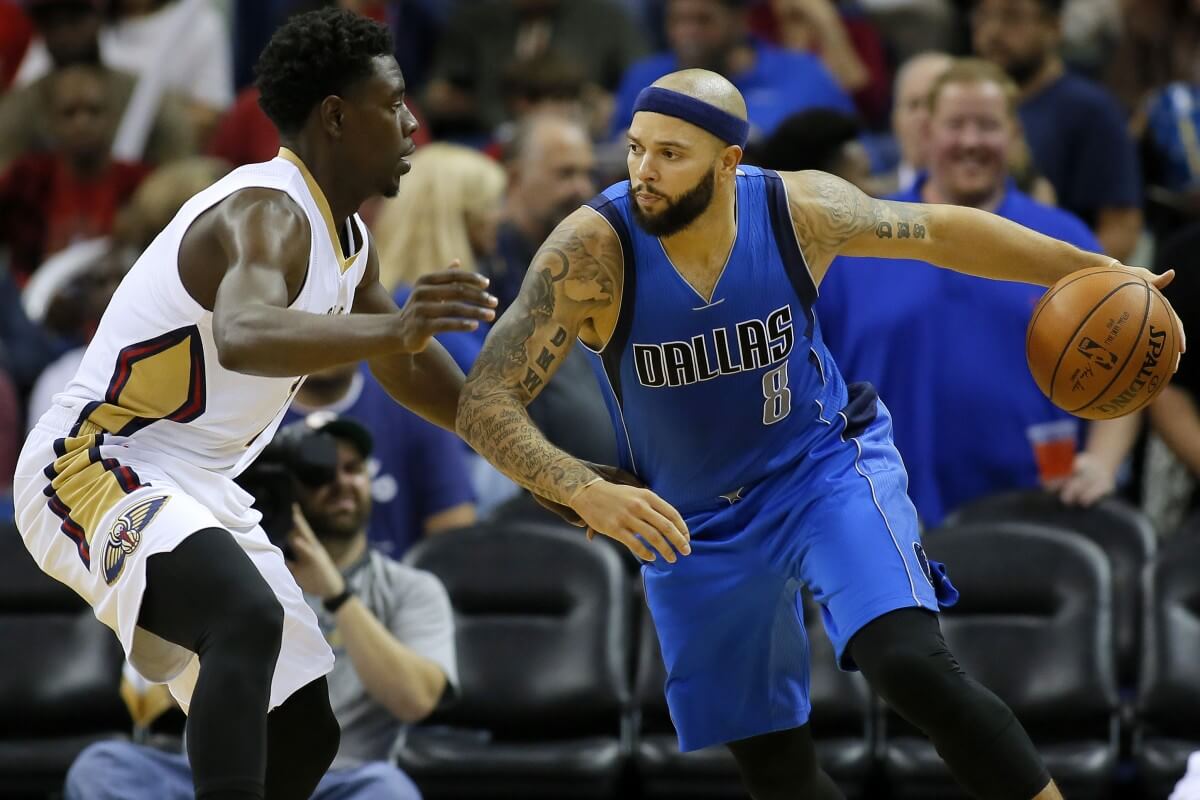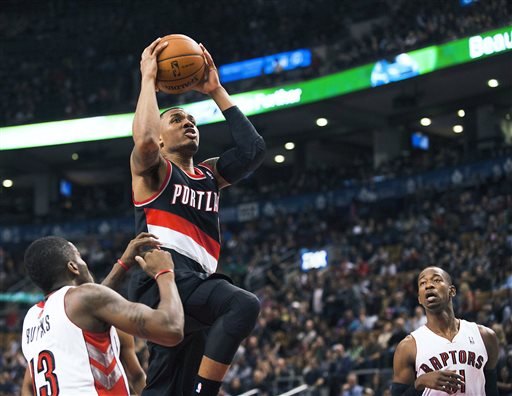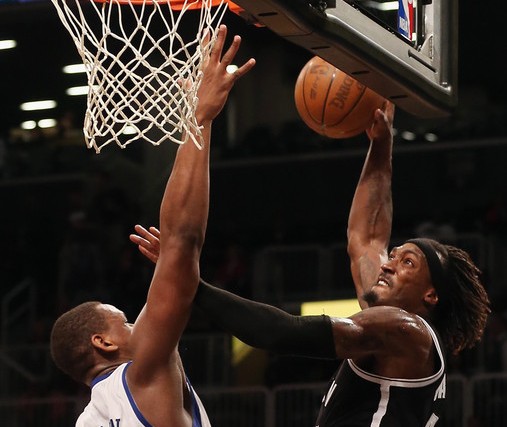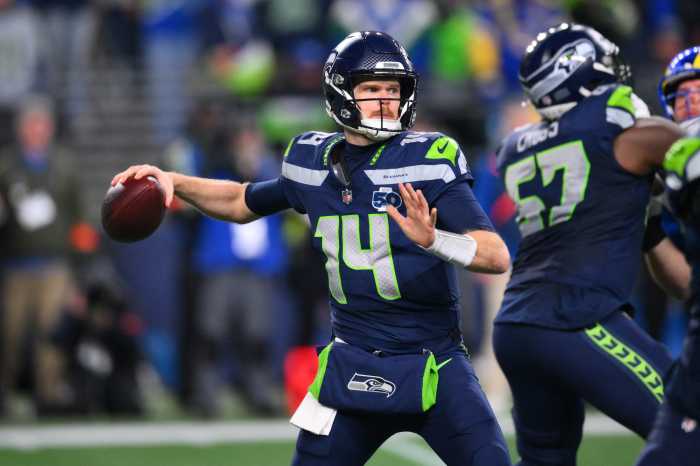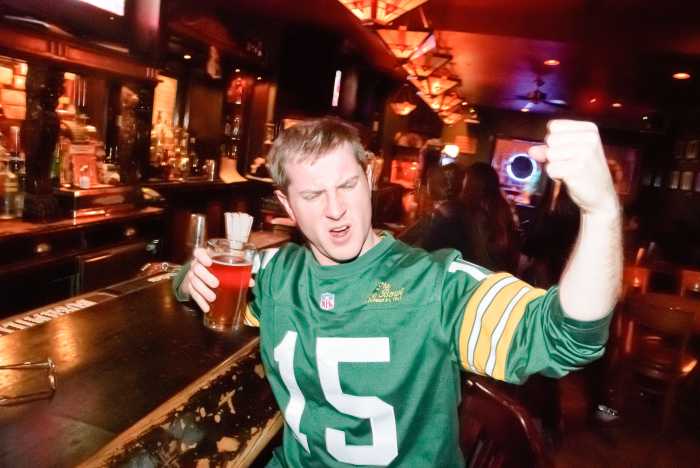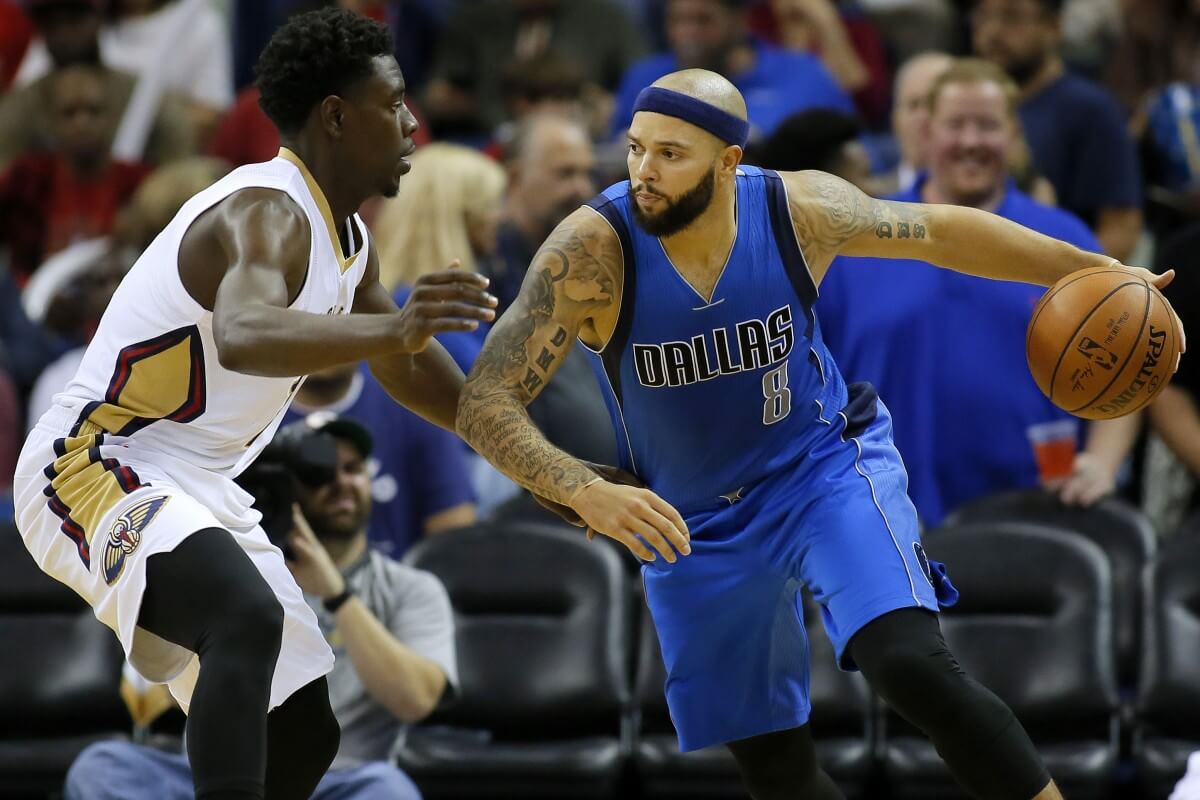
Earlier this week, Deron Williams made two off-the-dribble shots down the stretch of a 107-98 Mavericks victory, later reflecting on shots like that as few and far between in his time with the Nets.
“I don’t like to talk about my time in Brooklyn, but a lot of times I was in the corner waiting and watching, so it felt good to just have the ball at the end of the game and be able to make a play,” Williams said.
Later, speaking with Sports Illustrated, Wesley Matthews said something similar about Williams, that he had to “re-train himself from throwing it to Joe Johnson and watching.”
In talking about Mavs working out kinks of a new roster, Wes Matthews had this to say about Deron Williams’ role: pic.twitter.com/ASU5SsWgtj
— Rob Mahoney (@RobMahoney) November 12, 2015
Williams’s early-season averages aren’t far off from last year’s numbers: about 13 points, five assists, and one steal in 29 minutes per game.
Johnson had a bigger offensive load than Williams in crunch time when the two shared Brooklyn’s backcourt. That’s not a matter of debate. But it also wasn’t always the case.
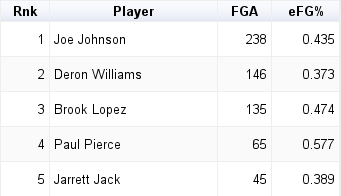
Williams had a more efficient year in crunch time that season with less attempts. But he often talked about waning confidence in his health and shaky drives to the basket, and continued to take a lesser load with the game on the line. Williams made just 11 crunch-time shots in his last year with the Nets, in fewer attempts (37) than Jarrett Jack (45). Over half of Williams’s makes were assisted on, indicating that he relied on someone else to create those looks, instead of working off the dribble himself.
The team built around him as the franchise player from Day One in Brooklyn, and he was still the team’s best overall player in that first year. But Williams didn’t lack for chances as time went on. Though he took less shots, he missed an open jump shot to close Game 1 of the team’s first-round Eastern Conference playoff matchup against the Atlanta Hawks, and dropped a stunning 35 points in a close home victory in Game 4 a week later.
But it’s true he was watching and waiting a lot. He was also put in that position: by Joe Johnson’s crunch-time heroics, by Paul Pierce’s late-game playmaking, and by his own relationship with his body and his shot.

